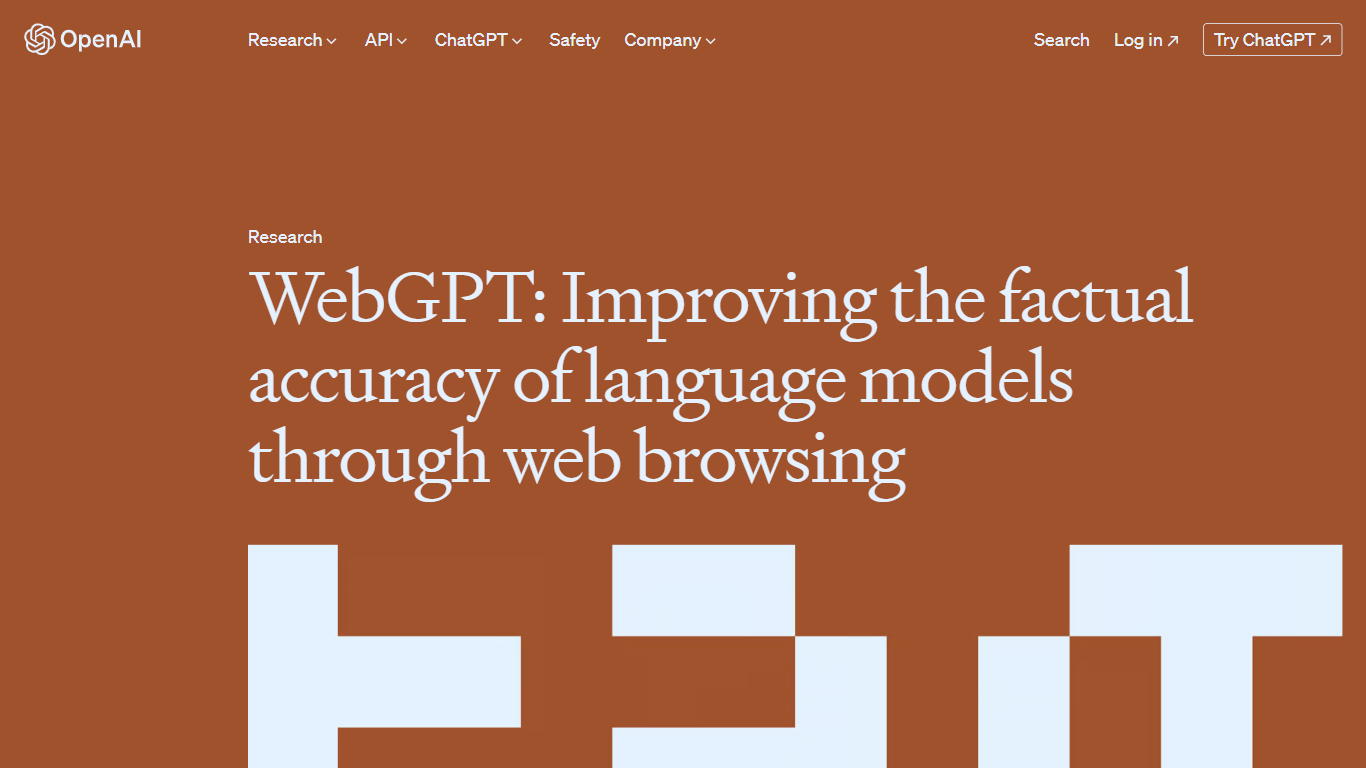
Last updated 02-12-2024
Category:
Reviews:
Join thousands of AI enthusiasts in the World of AI!
WebGPT
Discover WebGPT, the innovation designed to enhance the factual accuracy of language models by fine-tuning GPT-3 with web browsing capabilities. This breakthrough allows the model to leverage a text-based web browser, enabling it to more precisely answer open-ended questions. WebGPT simulates human online research behavior by submitting search queries, navigating links, and scanning web content to source and cite information for reliable answers. With the application of human feedback and advanced training techniques, WebGPT aims to create an AI that provides more truthful and helpful responses, standing at the forefront of truthful AI development. Join the journey towards developing robust, general-purpose AI systems that represent substantial progress in AI reliability and veracity.
Text-Based Web Browsing Capabilities: Enables GPT-3 to use a text-based browser for researching and composing answers.
Human Feedback Training: Incorporates feedback to enhance the model's performance in providing accurate and helpful answers.
Source Citing for Accuracy: Trains the model to cite sources, facilitating better feedback for factual accuracy improvements.
Rejection and Reinforcement Learning: Utilizes advanced learning methods to fine-tune the model's response quality.
Evaluation on ELI5 and TruthfulQA: Demonstrates a commitment to factual accuracy through rigorous testing and human evaluations.
1) How does WebGPT improve the factual accuracy of language models?
WebGPT improves factual accuracy by teaching GPT-3 to use a text-based web browser to research and answer open-ended questions.
2) What role do humans play in training WebGPT?
Humans are involved in training the model to ensure it learns to give more helpful and accurate answers and provide feedback on its performance.
3) Why is it important for the model to cite its sources?
The model cites its sources so that humans can check the reliability of the information and provide feedback accordingly.
4) What are some current challenges for WebGPT?
Despite its improvements, WebGPT still faces challenges such as handling unfamiliar question types and sometimes quoting unreliable sources.
5) Did WebGPT perform better than human demonstrators in any of the evaluations?
Yes, WebGPT outperformed human demonstrators in providing answers that were preferred 56% of the time in ELI5 test set evaluations.
